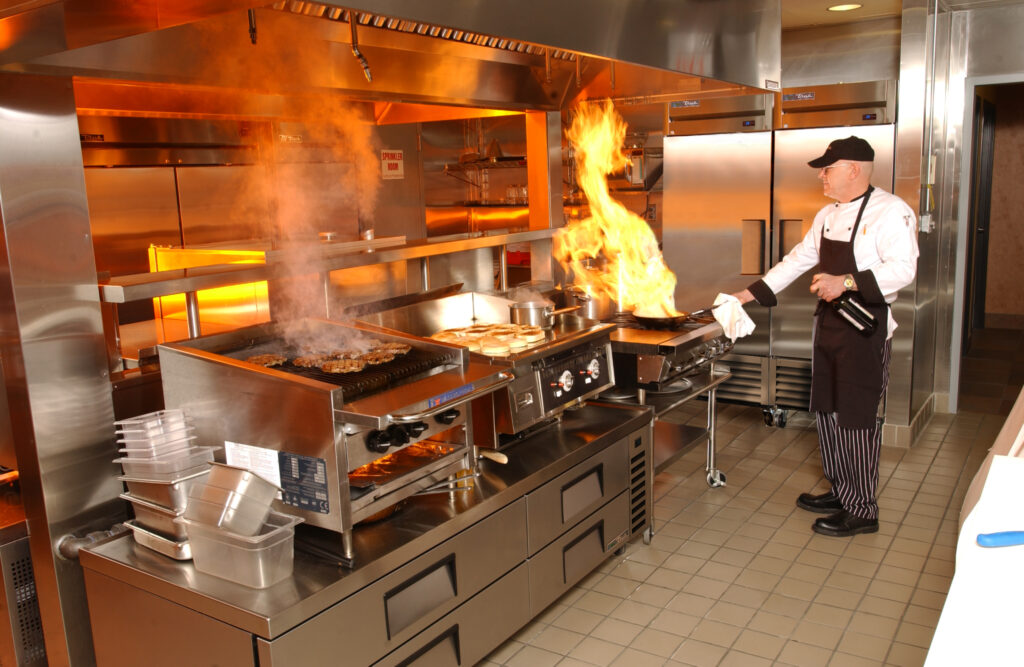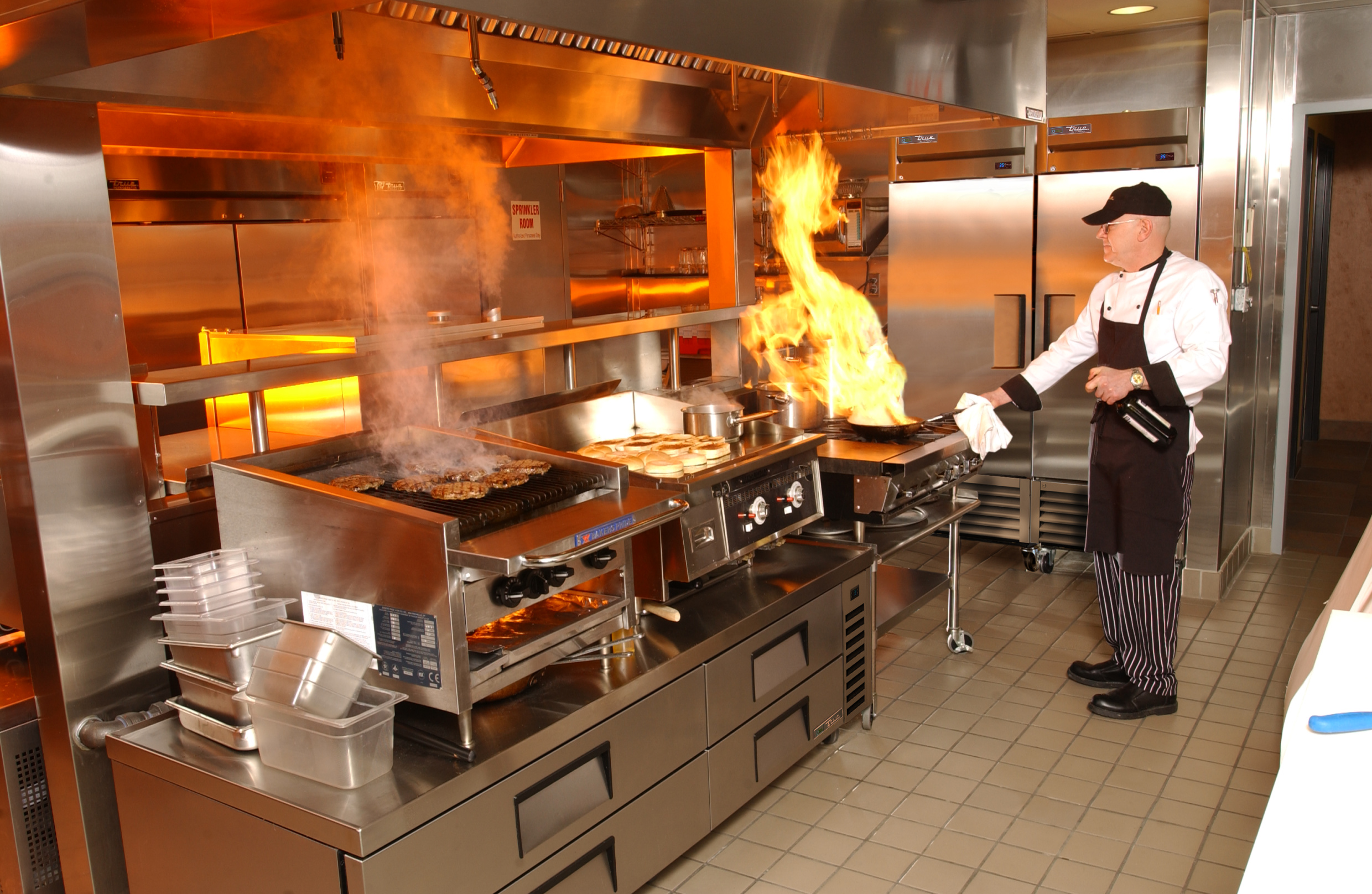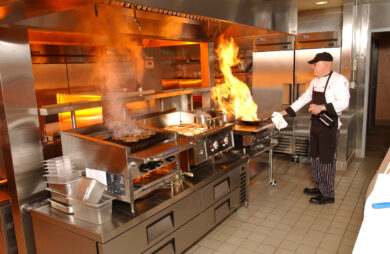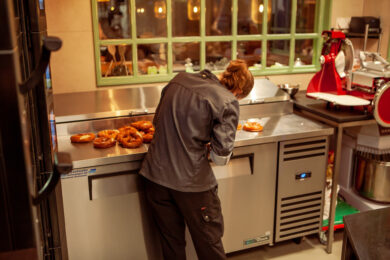Cool things down by keeping your commercial refrigeration running efficiently
Electricity remains a significant ongoing overhead for Australian commercial kitchen operators. Whilst recent government interventions will hopefully deliver modest short-term reductions in energy costs, the overall trend is still very much heading on an upward trajectory thanks to record high inflation rates and ongoing challenges being faced by Australia’s under-pressure electricity grid.
Of course, every time energy prices rise, so does the pressure on your bottom line. So what can you do about it as a business owner, especially given you can’t simply stop using electricity?
Shop around
The first and perhaps most obvious step is to simply shop around for a better deal. You might be surprised how much you can save off your bills just by asking the question of your existing energy retailer. For the sake of a few hundreds dollars, they’d probably much rather keep you as a business customer than lose you to another company.
More efficient = Lower bills
Beyond getting the best possible energy deal, it’s essential to take active steps to ensure the most energy-intensive equipment in your kitchen, such as commercial refrigeration units, is always running as efficiently as possible. From the largest cool rooms to the smallest under-counter units, the harder your refrigeration has to work to keep your food and ingredients at the right temperatures, the more energy they use – and the higher your bills are likely to be.

Here are 5 specific tips to help maximise the efficiency of your commercial refrigeration units.
- Keep your refrigeration units clean
Grease and grime can accumulate incredibly quickly in a busy commercial kitchen and this build-up can directly impact the efficiency and cooling performance of your refrigeration units. Most commercial refrigeration equipment operates using a “forced air” system design, where ambient air is pulled in from the surroundings to cool down the hot refrigerant running through the condenser. Other elements such as grease and debris (like flour) can also be brought in, which can accumulate on the surface of the condenser coil. Over time, this build up can restrict the access to cooler air and cause the system components to run longer, impacting efficiency and in the most extreme cases, even lead to eventual system failure and the urgent need for expensive repairs. The good news of course, is the solution is simple. Clean and maintain your commercial refrigeration units regularly, in-line with the manufacturers instruction.
- Make sure seals are air-tight
Door, drawer and lid seals (or “gaskets”) are an essential part of any commercial refrigeration system, ensuring that cold air doesn’t leak out and warmer ambient air can’t easily get in. Perhaps not every operators knows that these parts are classed and “consumables”, and are subject to wear and tear through normal over time, eventually requiring replacement. Any rips or splits can make a significant difference to cooling performance of the unit, which in turn impacts how hard a refrigeration unit has to work, again driving up energy bills. Severely damaged gaskets can also affect food quality and safety so should not be ignored. Remember to always buy OEM gaskets specified by the equipment manufacturer to ensure the proper fit and quality.
- Keep things organised inside
Often overlooked is the fact that incorrectly or over loaded refrigeration units can also place unnecessary strain on systems and impact cooling performance. Think about what goes into your commercial refrigerators – and also where you put things. For example, don’t push items right up to the internal walls of the unit if possible, as this might impact air circulation. Also be careful of what temperature produce is when it goes into the unit. Many “holding” cabinets are designed to maintain temperature, not pull it down (for example putting fresh food into a freezer).
- Service your equipment regularly
Whether your business is large or small, chances are you’ve made a significant capital investment in commercial refrigeration. Take care of your units and you should expect to enjoy many years of efficient and trouble-free operation. In addition to the routine cleaning and maintenance you should do as an operators, it can also be beneficial to the efficiency and longevity of the equipment to also get a professional refrigeration engineer in periodically to service the unit.
- When the time is right, consider replacement
Ultimately, nothing lasts forever. If your current refrigeration units are getting old, there’s a very strong chance they’re having to work a lot harder to keep things cool than they used to. Almost certainly, they are less energy efficient than the current products available on the market, and likely the Warranty has long since expired, so you might be paying for more and more costly repairs out of your own pocket. Replacing old units with the latest and greatest may prove to be the smartest choice when it comes to long-term energy savings, especially if your current assets are more than 5 years old. Refrigeration technology moves fast, and great advances in terms of energy efficiency have been made in recent years. Many distributors of heavy equipment also offer Finance and Leasing agreements, so the capital outlay of replacing and upgrading might not be too bad either.
If you’re interested in exploring the options, True Refrigeration offers an extensive range of innovative and highly energy-efficient solutions to suit every commercial kitchen and budget.
Looking for more energy-efficient commercial refrigeration solutions?
Contact True Refrigeration today.






